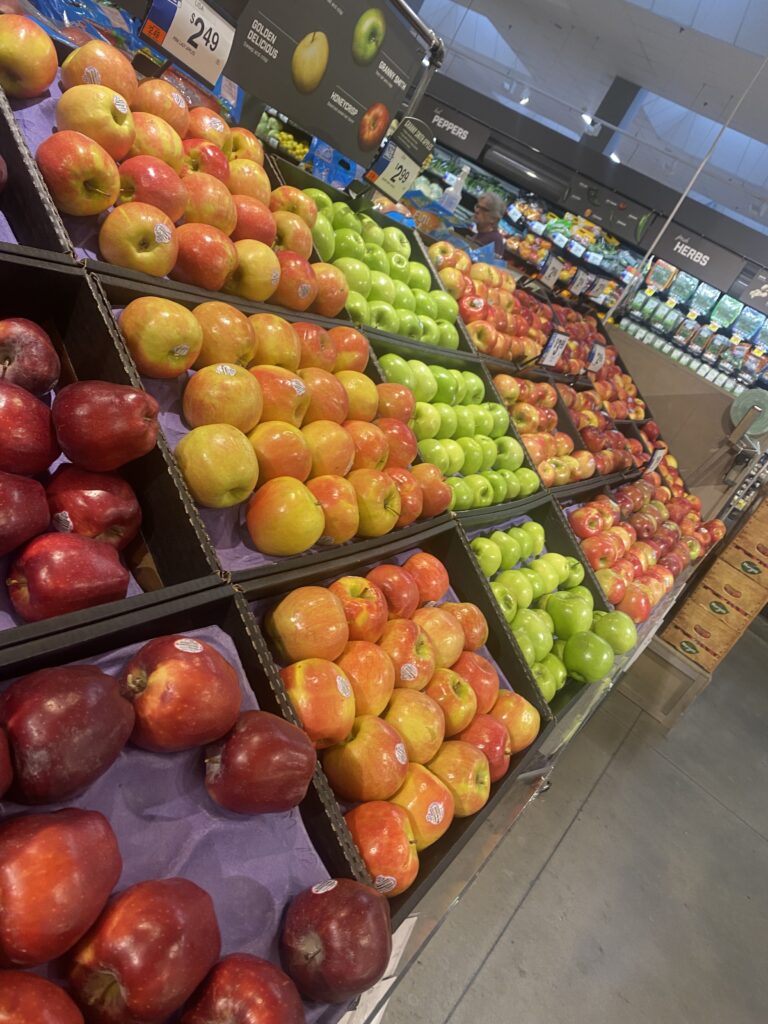A proposed amendment that would offer tax exemptions to supermarkets in two D.C. neighborhoods was met with criticism Wednesday from city councilmembers who said the amendment would be a waste of government dollars in areas that didn’t need it.
The proposed amendment would expand a 2010 bill which sought to incentivize grocers to build locations in low-income “food deserts.” Introduced by Councilmembers Brandon Todd, Todd McDuffie and Mary M. Cheh, the amendment would allow supermarkets that build locations in Shepherd Park and Woodridge to claim up to 10 tax deductions.
Although other councilmembers said they agreed with the intent of the 2010 bill, they questioned whether supermarkets in Shepherd Park should qualify for an exemption. Residents of areas where supermarkets have received tax exemptions typically earn low incomes, travel long distances to supermarkets and do not own any cars to ease that travel.
In the upper Northwest corner of the District, Shepherd Park has an average household income of $187,000 per year and more than 98 percent of residents own at least one car, according to U.S. Census Bureau statistics. The neighborhood is also less than a mile away from six grocery stores in downtown Silver Spring.
“If I’m envisioning this area correctly, there’s a decent disposable income and very high education,” said Councilman Robert White. “Why do we need to incentivize grocers to go there?”
Councilwoman Elissa Silverman repeated White’s question: “If I gave you $300,000, is this the place you would choose to subsidize a store?”
Councilwoman Anita Bonds, who co-sponsored the bill in July, also questioned whether Shepherd Park deserved the exemption.
“A bill like this could very well become a giveaway of tax dollars for supermarkets in a neighborhood that already has access,” Bonds said. “There are neighborhoods that we’ve said ‘yes, they need access,’ but we haven’t aggressively pursued supermarkets.”
The second neighborhood included in the amendment, Woodridge, was recently named “D.C.’s Hottest Neighborhood” by Redfin, a real estate research blog. In 2009, the average yearly household income in Woodridge was $80,000, according to the U.S. Census Bureau. In 2014, that number rose to $91,000. More than 98 percent of households also owned at least one car, according to census statistics.
However, the neighborhood also only has one small-sized supermarket: Good Food Markets, a mission-driven grocery store that wants to build more locations in underserved areas. Co-founder Philip Sambol said a tax exemption could help Good Food Markets expand their business and expand their job training program for locals.
“It has a lot to do with the ability of community members to support themselves,” Sambol said. “These communities are not just food deserts — they are retail deserts, they are education deserts and they are transportation deserts.”
According to the D.C. government’s Open Data Project, nine supermarkets serve Wards 4 and 5, which contain Shepherd Park and Woodridge respectively. In contrast, Wards 7 and 8, which contain every neighborhood east of the Anacostia River, only have three full-sized supermarkets.
Beverley Wheeler, the director of D.C. Hunger Solutions, a local nonprofit dedicated to reducing food insecurity for District residents, said in her testimony that Ward 7 has one grocery store serving every 35,000 residents and Ward 8 has one grocery store for every 79,000 residents. Wards 7 and 8 are also more than 90 percent black and the average family income is $51,500 per year, according to data gathered by NeighborhoodInfo D.C., a project started by the Urban Institute.
“The lack of grocery store access in Wards 7 and 8 is beginning to become a racial equity issue,” Wheeler said.
Andrew Trueblood, the chief of staff of the Office of Planning and Development, said the addition of the two neighborhoods in the proposed bill would set a precedent for attracting stores east of the Anacostia River.
“We have been working especially hard to attract grocers to this part of the city,” Trueblood said.
Yet councilmembers said they should focus their energies on attracting grocers to neighborhoods that actually need it. Councilman Jack Evans, the chairman of the Finance and Revenue Committee, said the city government needs to do “whatever it takes” to get a supermarket east of the river.
“You provide the store, we’ll provide the money,” Evans said in response Wheeler’s testimony. “I’m serious about that.”
Councilwoman Silverman requested a fiscal impact assessment from the D.C. Office of Tax and Revenue to see how much the exemptions in Shepherd Park and Woodridge would cost the city. After a 30 day review, councilmembers will vote on the amendment in late October.








